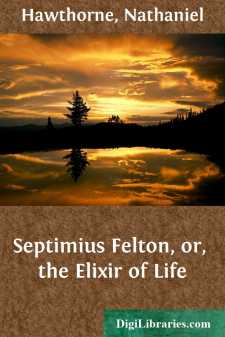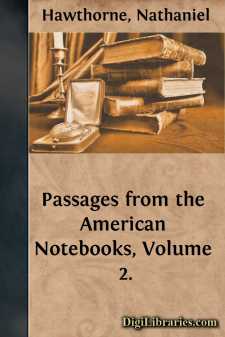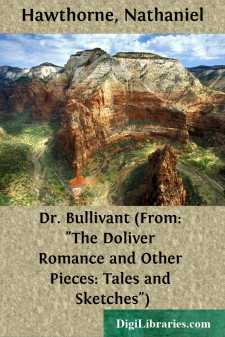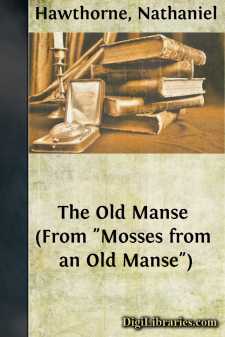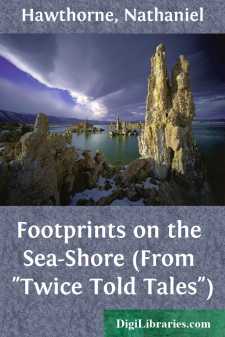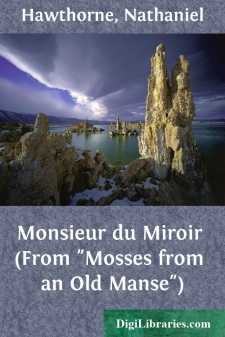Categories
- Antiques & Collectibles 13
- Architecture 36
- Art 48
- Bibles 22
- Biography & Autobiography 815
- Body, Mind & Spirit 144
- Business & Economics 28
- Children's Books 18
- Children's Fiction 14
- Computers 4
- Cooking 94
- Crafts & Hobbies 4
- Drama 346
- Education 58
- Family & Relationships 59
- Fiction 11834
- Games 19
- Gardening 17
- Health & Fitness 34
- History 1378
- House & Home 1
- Humor 147
- Juvenile Fiction 1873
- Juvenile Nonfiction 202
- Language Arts & Disciplines 89
- Law 16
- Literary Collections 686
- Literary Criticism 179
- Mathematics 13
- Medical 41
- Music 40
- Nature 179
- Non-Classifiable 1768
- Performing Arts 7
- Periodicals 1453
- Philosophy 65
- Photography 2
- Poetry 896
- Political Science 203
- Psychology 44
- Reference 154
- Religion 515
- Science 126
- Self-Help 85
- Social Science 83
- Sports & Recreation 34
- Study Aids 3
- Technology & Engineering 59
- Transportation 23
- Travel 463
- True Crime 29
Sort by:
Septimius Felton. The existence of this story, posthumously published, was not known to any one but Hawthorne himself, until some time after his death, when the manuscript was found among his papers. The preparation and copying of his Note-Books for the press occupied the most of Mrs. Hawthorne's available time during the interval from 1864 to 1870; but in the latter year, having decided to...
more...
"But this painter!" cried Walter Ludlow, with animation. "He not only excels in his peculiar art, but possesses vast acquirements in all other learning and science. He talks Hebrew with Dr. Mather, and gives lectures in anatomy to Dr. Boylston. In a word, he will meet the best instructed man among us, on his own ground. Moreover, he is a polished gentleman,âa citizen of the...
more...
Hearken to our neighbor with the iron tongue. While I sit musing over my sheet of foolscap, he emphatically tells the hour, in tones loud enough for all the town to hear, though doubtless intended only as a gentle hint to myself, that I may begin his biography before the evening shall be further wasted. Unquestionably, a personage in such an elevated position, and making so great a noise in the world,...
more...
Respectable-looking individual makes his bow and addresses the public. In my daily walks along the principal street of my native town, it has often occurred to me, that, if its growth from infancy upward, and the vicissitude of characteristic scenes that have passed along this thoroughfare during the more than two centuries of its existence, could be presented to the eye in a shifting panorama, it...
more...
THE HOUSE OF THE SEVEN GABLES. IN September of the year during the February of which Hawthorne had completed "The Scarlet Letter," he began "The House of the Seven Gables." Meanwhile, he had removed from Salem to Lenox, in Berkshire County, Massachusetts, where he occupied with his family a small red wooden house, still standing at the date of this edition, near the Stockbridge Bowl....
more...
Brook Farm, Oak Hill, April 13th, 1841.—. . . . Here I am in a polar Paradise! I know not how to interpret this aspect of nature,—whether it be of good or evil omen to our enterprise. But I reflect that the Plymouth pilgrims arrived in the midst of storm, and stepped ashore upon mountain snowdrifts; and, nevertheless, they prospered, and became a great people,—and doubtless it will be the same...
more...
His person was not eminent enough, either by nature or circumstance, to deserve a public memorial simply for his own sake, after the lapse of a century and a half from the era in which he flourished. His character, in the view which we propose to take of it, may give a species of distinctness and point to some remarks on the tone and composition of New England society, modified as it became by new...
more...
Between two tall gate-posts of rough-hewn stone (the gate itself having fallen from its hinges at some unknown epoch) we beheld the gray front of the old parsonage, terminating the vista of an avenue of black-ash trees. It was now a twelvemonth since the funeral procession of the venerable clergyman, its last inhabitant, had turned from that gateway towards the village burying-ground. The wheel-track...
more...
It must be a spirit much unlike my own, which can keep itself in health and vigor without sometimes stealing from the sultry sunshine of the world, to plunge into the cool bath of solitude. At intervals, and not infrequent ones, the forest and the ocean summon meâone with the roar of its waves, the other with the murmur of its boughsâforth from the haunts of men. But I must wander many a...
more...
Than the gentleman above named, there is nobody, in the whole circle of my acquaintance, whom I have more attentively studied, yet of whom I have less real knowledge, beneath the surface which it pleases him to present. Being anxious to discover who and what he really is, and how connected with me, and what are to be the results to him and to myself of the joint interest which, without any choice on my...
more...


